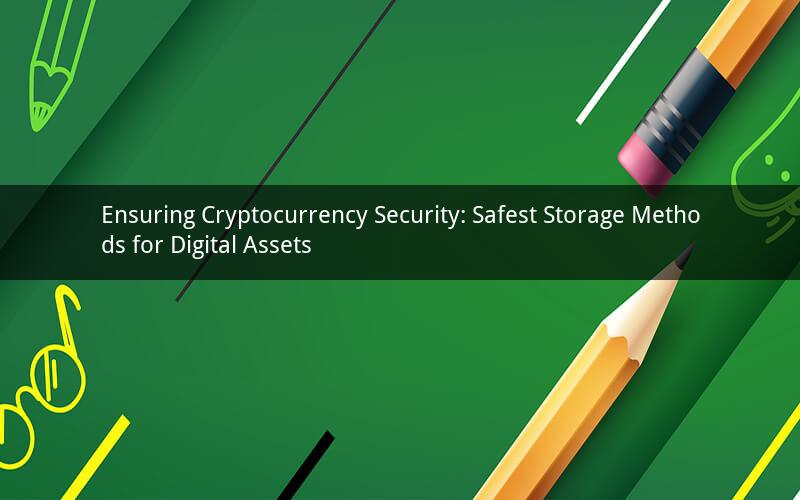
Introduction:
The rise of cryptocurrencies has brought along with it a new form of wealth and investment opportunities. However, with great wealth comes great responsibility. As the value of digital assets continues to soar, the need for secure storage methods has become paramount. This article explores the safest ways to store your cryptocurrency, providing a comprehensive guide to safeguarding your digital assets.
1. Cold Storage: The Safest Option
Explanation:
Cold storage is widely regarded as the safest method to store cryptocurrency. Unlike hot wallets, which are connected to the internet and susceptible to hacking, cold storage keeps your assets offline. There are two primary types of cold storage: hardware wallets and paper wallets.
1.1 Hardware Wallets:
Explanation:
Hardware wallets are physical devices specifically designed for storing cryptocurrency. They create a secure, offline environment for your digital assets, providing robust protection against hacking attempts. Some popular hardware wallets include Ledger, Trezor, and CoolWallet.
1.2 Paper Wallets:
Explanation:
Paper wallets are a more minimalist approach to cold storage. They involve printing your private and public keys on paper, effectively isolating your cryptocurrency from the internet. However, paper wallets can be easily damaged or lost, making it crucial to store them in a safe and secure location.
2. Multi-Factor Authentication: Adding an Extra Layer of Security
Explanation:
Regardless of the storage method you choose, implementing multi-factor authentication (MFA) adds an extra layer of security. MFA requires users to provide multiple forms of verification before accessing their cryptocurrency. This could include a password, a PIN, a biometric scan, or a unique code generated by a mobile app.
3. Backup and Recovery: Never Losing Your Cryptocurrency
Explanation:
Even with the safest storage methods, there is always a risk of losing your cryptocurrency due to hardware failure, misplacement, or theft. To mitigate this risk, it is crucial to have a backup and recovery plan in place.
3.1 Regular Backups:
Explanation:
Regularly backing up your cryptocurrency wallet is essential. For hardware wallets, this involves creating a backup of the recovery seed. For paper wallets, it means keeping multiple copies in safe locations.
3.2 Recovery from Loss:
Explanation:
If you lose access to your cryptocurrency, the recovery process depends on the storage method you used. For hardware wallets, you can use the recovery seed to restore your assets to a new wallet. For paper wallets, you will need to print new wallets with the same private and public keys.
4. Secure Passwords and Phishing Awareness
Explanation:
Using strong passwords is crucial for securing your cryptocurrency. A strong password should be long, complex, and unique. Additionally, being aware of phishing attempts and other scams is essential to protect your digital assets.
5. Regularly Update Your Wallet and Software
Explanation:
Cryptocurrency wallets and software are constantly evolving, with new updates and security patches released regularly. Keeping your wallet and software up to date is crucial for maintaining the highest level of security.
Conclusion:
Ensuring the safety of your cryptocurrency is crucial in today's digital world. By employing cold storage, implementing multi-factor authentication, creating backups, using strong passwords, and staying informed about potential threats, you can significantly reduce the risk of losing your digital assets.
Questions and Answers:
Q1: What is the main advantage of using a hardware wallet over a paper wallet?
A1: The main advantage of using a hardware wallet is the offline environment it provides, making it more secure against hacking attempts. Additionally, hardware wallets have built-in security features, such as a display for verifying transactions.
Q2: Can I store multiple cryptocurrencies in a single hardware wallet?
A2: Yes, many hardware wallets support multiple cryptocurrencies, allowing you to store and manage various digital assets in one device.
Q3: Is it possible to recover my cryptocurrency if I lose my private key?
A3: Losing your private key means losing access to your cryptocurrency. However, if you have a backup or recovery seed, you can restore your assets to a new wallet.
Q4: How often should I update my cryptocurrency wallet and software?
A4: It is recommended to update your cryptocurrency wallet and software as soon as new updates or security patches are released. This ensures that your wallet remains secure against emerging threats.
Q5: Are paper wallets completely safe?
A5: While paper wallets are generally secure, they are not immune to risks. Physical damage, misplacement, or theft can lead to losing your cryptocurrency. It is crucial to store paper wallets in a safe and secure location.